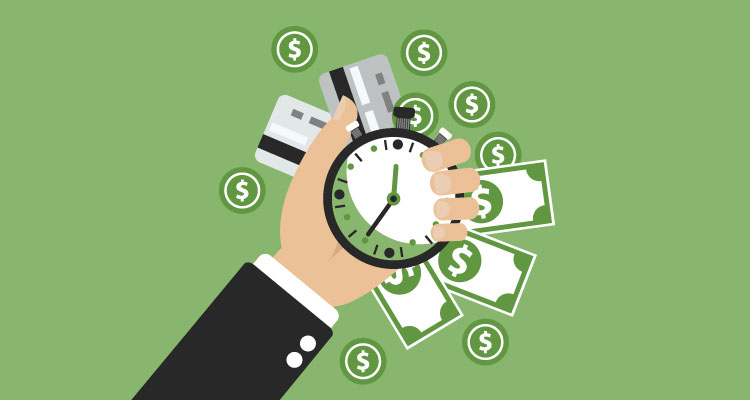Whether if it’s Facebook Messenger, Twitter’s Direct Messaging chatbot, Apple’s Siri, Amazon’s Alexa, Google’s Allo, or WhatsApp, there’s no shortage of services that offer integrated bots that can handle everything from customer service, booking airline tickets or hotel rooms, and shopping online. Interacting with machines may seem awkward at first, but this conversational eCommerce is beneficial for both customers and businesses since bots can solve problems and speed up repetitive tasks.
Bots aren’t just limited to eCommerce apps or sites. The Fintech industry is also exploring the endless opportunities that bots may present. For example, banks like Santander and Bank of America are planning on using bots to create one-to-one conversations, while others believe that bots will be used to onboard customers and aid them with important financial decisions.
Additionally, bots have the ability to also impact the entire payments industry by creating innovative systems and platforms that achieve tasks like focusing entirely on the needs of customers. But, how else can we expect AI bots to change how we send and receive payments?
What are AI bots?
Before I start discussing how bots are going to influence payments, I want to take moment to quickly explain what AI bots are.
As Hira Saeed states in VentureBeat, “There are two kinds of chatbots: scripted bots and A.I. bots. A scripted chatbot doesn’t carry even a glimpse of A.I., whereas A.I. bots are built on” Natural Language Processing (NLP) and Machine Learning (ML). Saeed adds that “They are based on the human capability of learning and absorbing information, but imbued with more efficiency.”
Unlike the minimal A.I. interface, chatbots are capable of processing 1,000 times faster than humans. Chatbots are also more convenient since “an interface just presents options,” while A.I. chatbots allow you to type in your own answer. In other words, A.I. chatbots present many more possibilities
If you check out the Due Facebook page you’ll find that our Duebot responds to your questions. Special thanks to the chatbot experts at ChattyPeople.
How AI bots are impacting the payments industry?
By harnessing the power of A.I. software to process language from interactions with people in chat programs, messaging apps, and virtual assistants, the payments industry will be able to;
- Make quick and painless peer-to-peer payments through integrations. The PayPal bot is an example of this since it integrates with Facebook Messenger, Siri, and Slack. This allows users to make direct p2p payments without leaving your preferred app or platform. For instance, you can simply type “/PayPal send $5 to @Tom” within Slack to pay him back for that morning cup of coffee.
- Streamline the payment process by making direct payments within Messenger. Since more than 800 million use Facebook Messenger each month, which is about 11% of the world’s population, it’s safe to say that Messenger is a big deal. Companies like Hipmunk are using Messenger to book and pay for hotels with the linked card on Facebook directly within Messenger, which streamlines their entire booking process.
- Facilitate P2P payments via text messaging. Outside of integrations through Messenger or Slack, chatbots could be used to pay other people, check mobile wallet balances, review the status of group payments, and remind others that they owe you money. For example, Mypoolin offers a mobile payments chatbot that allows you to send or receive payments via text messaging. All users have to do is input a command like ‘transfer [amount] [phone number]’ and once the payment is processed the recipient receives the money instantly.
- Create personalized customer experiences. A.I. bots are being used primarily to improve the customer experience by developing a personalized journey. MasterCard teamed up with Kasisto for Mastercard KAI. This bot would extend services like making financial decisions, reviewing purchases, learning more about cardholder benefits, and monitoring spending. Back of America’s Erica will use “artificial intelligence, predictive analytics and cognitive messaging to help customers do things like make payments, check balances, save money and pay down debt.”
- Set-up recurring payments through verbal commands. Let’s say that you just received a new credit card that you use for a subscription or to make recurring payments. In the past, you would have to manually enter the new card information. With bots, however, you can use verbal commands to input this new information. Additionally, bots could be used to inform customers if their card is about to expire or if there is a new upgrade your offering.
- Will save businesses money. If you have customers calling your business to make a payment or ask a question regarding a bill, you may be paying around $6 per call. Chatbots can replace those calls, which in turn will save your business money. In fact, T-Mobile was able to save “48 percent in customer care costs by shifting customers away from customer-hostile voice calls to messaging and bots.”
Wrap-up.
A.I. bots have the power to impact the payments industry by allowing users to initiate and review payments directly from their smartphones. Furthermore, bots could streamline the entire payment process from viewing a catalog to making a purchase to tracking the order. Most importantly, bots are an affordable and effective way to improve the customer experience.
While humans won’t be completely replaced, there’s no denying that bots are allowing people to send and receive payments more quickly and conveniently than they ever have before.













